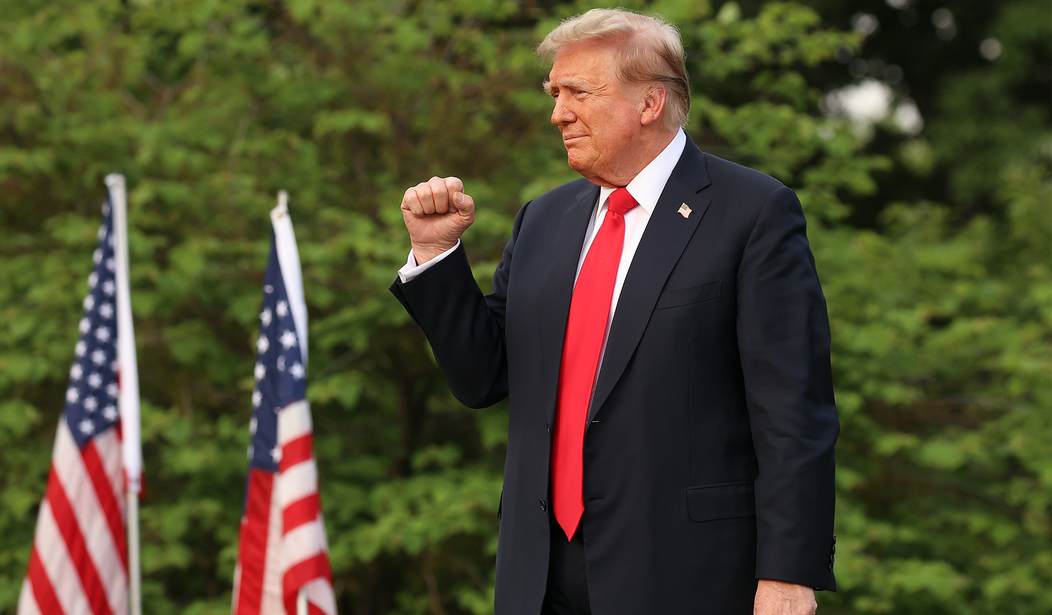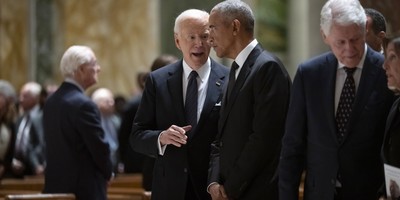If Donald Trump wins the next U.S. presidential election, he may face European “resistance,” as witnessed in his first term. Then, a coalition of “Old Europe,” led by German Chancellor Angela Merkel, opposed Trump’s demands to diminish Europe’s dependence on Russian natural gas and increase its military budgets as part of NATO burden sharing.
If the second Trump term arrives, it is unlikely to be different. Germany, struggling to define a coherent Russia policy under Chancellor Olaf Scholtz and France’s President Emmanuel Macron, will likely oppose US policies in Ukraine and the Middle East.
Political and economic differences with the EU abounded during Trump's first term. One significant flashpoint in 2019 was France's digital tax, which targeted U.S. tech giants like Facebook and Google. In response, Trump threatened to impose a 100% tariff on French goods, particularly wine, cheese, and champagne, if France did not withdraw its proposed 25% tax on American companies operating in France.
During this period, the tension between Trump and Macron reflected broader disagreements over foreign and security policies, the global influence of tech giants, the evolving nature of international trade, and the regulation of multinational corporations. Both are likely to resurface in any future Trump administration.
The situation has deteriorated over the past four years under the Biden-Harris administration. The relationship between Biden and Macron, which Politico characterized as "ill-fitting, occasionally chaotic, but decidedly solid," has faced significant challenges. Instead of addressing issues when they arose, both leaders often left problems unresolved, allowing tensions to persist.
France’s recent foreign policy surprisingly put Paris into closer cooperation with Iran. This alignment is obvious in the Middle East, where France has taken positions that favor Iranian geopolitical interests, which clash with Trump’s. Not only is Iran the primary foe of his crown foreign policy achievement, the Abraham Accords, but Teheran sent assassins to murder the 45th US President.
Recommended
Macron’s recent call for an arms embargo on Israel, aimed at saving Hezbollah in Lebanon and Hamas in Gaza, signals a move to support groups aligned with Iran’s imperial ambitions and aimed against America’s allies: Israel and the Sunni Arab states, including Saudi Arabia and UAE. Macron’s call is ludicrous and performative: France does not supply Israel with arms, but his move aligns Elysee’s policies with Iran.
Macron's proposal for an arms embargo against Israel came just 10 days after the fiery end of Hezbollah’s leader, Hassan Nasrallah, a figure installed by Iran to perpetuate its proxy conflict with Israel. For decades, Iran has exerted significant influence over Lebanon, treating the country like a colony through its proxy, Hezbollah.
Iranian parliament speaker Mohammad Bagher Ghalibaf stated in an interview with Le Figaro that Iran was ready to negotiate with France to implement United Nations Resolution 1701, which aims to keep southern Lebanon free of non-state military forces. This transparent attempt by Iran to involve France in Lebanon’s internal security, bypassing Lebanese authorities, led to strong condemnation from Lebanon’s Prime Minister Najib Mikati, who described it as "blatant interference" in the country's sovereignty.
Macron has continued to undermine Israel’s policies in Lebanon, de facto strengthening the Iranian proxy Hezbollah. France is backing the United Nations Interim Force in Lebanon (UNIFIL), which includes French troops. While UNIFIL’s mission was initially intended to prevent Hezbollah from operating near the Israeli border, it utterly failed. Hezbollah has exploited areas near UNIFIL posts to launch attacks against Israel, demonstrating the peacekeeping force’s inability to create a weapons-free zone in southern Lebanon. By failing to stop Hezbollah's aggression, UNIFIL has facilitated Iran's proxy war against Israel, allowing Hezbollah to implement Iran’s goals.
This failure has allowed Hezbollah to achieve Teheran’s goal of “burning Israel,” launching thousands of missiles into the Jewish State, burning towns, villages, fields, and forests, and turning over 60,000 of its citizens, Jewish, Arab, and Druse, into internally displaced persons (IDPs).
France’s alignment with Iran extends beyond the Middle East. For instance, France has been supplying arms to Armenia, a country that might use these weapons in the future to reclaim Karabakh, an Azerbaijani territory liberated from Armenian occupation in 2020-2023. Reportedly, France supplied APCsGM-200 radar systems and. While Israel provided drones and other weapons to Azerbaijan, Iran sided with Christian Armenia against nominally Shi’ite, secular Azerbaijan in the recent conflict, finding itself on the side of France. According to the "Iran International" TV channel, Tehran and Yerevan they signed a significant arms deal worth $500 million this summer. Armenia would receive drones Shahed 136, Shahed 129, Shahed 197, Mohajer, and air defense missile systems. Allegedly, Yerevan would repay the substantial sum in kind by agreeing to establish Iranian bases on Armenian soil. Both Iran and Armenia denied these claims.
Why is Paris interested in sending weapons to Armenia, which, according to numerous publications in the West, is a hub for circumventing sanctions for Iran and Russia? For centuries, France considered the Southern Caucasus a geopolitical battlefield, trying to exert its influence there in competition with the Ottoman Empire, the British Empire, Russia, and later Turkey. Macron, whose country generates 80 percent of its electricity from nuclear reactors, does not care that Azerbaijan is a significant source of natural gas and, in the future, electricity to the EU.
Should Trump return to power in November, the ongoing French-Iranian collaboration and mutually supportive policies might lead to tensions between Washington and Paris. Trump has a long memory for anyone who supports his would-be assassins. The French decision to help Iran in the Middle East and South Caucasus is myopic and dangerous, as it might set the country on a collision course with the USA.

























Join the conversation as a VIP Member